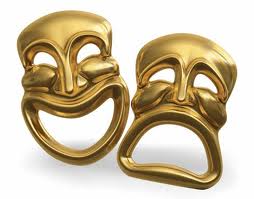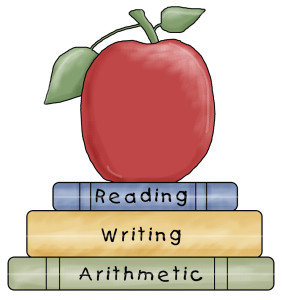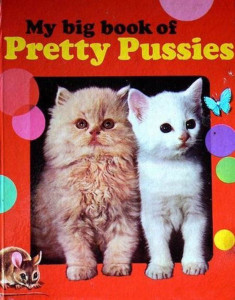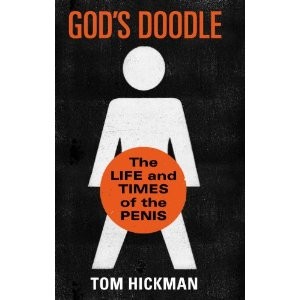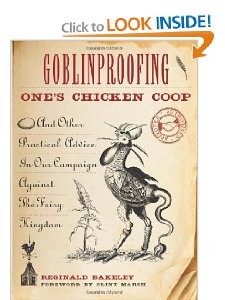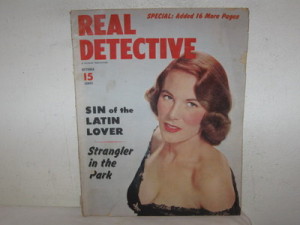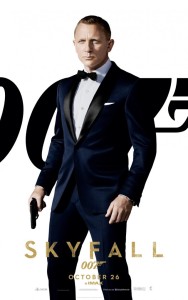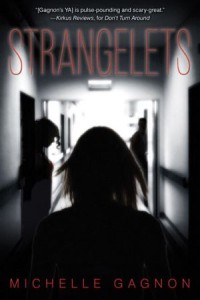James Scott Bell
@jamesscottbell
Today’s post is brought to you by Self-Publishing Attack! Nine out of 10 doctors who self-publish recommend it to their patients who self-publish.
***
Over the past year I’ve heard from a number of writing friends, all of whom have been traditionally published. They are facing some harsh realities, like being dropped by their publisher. Or being unable to land another contract because their sales record follows them around like a bad smell. They are good, solid writers who made it into the Forbidden City. But the gendarmes have tossed them outside the gates without so much as a fare-thee-well.
These writers tremble now in the dark forest, wondering about the band of scofflaws who are self-publishing. It’s not something they thought they’d ever want to (or have to) do.
They always thought they’d have that comfortable room in the City, and maybe even get a place at the A List banquet table if things broke right.
But things haven’t broken right. And now they don’t know what to do. So here’s an amalgamation of the advice and encouragement I’ve been handing out:
1. Know Thyself
Are you a writer? Yes, that’s the first question. I mean the kind of writer who can’t not write. If you can do anything else and it improves your quality of life, by all means, do that thing instead. It reminds me of Lawrence Block’s counsel: If you think you want to write a novel take two aspirins, lie down in a dark room, and wait for the feeling to pass.
If you get out of that dark room and know you have to do this, no matter what, take further stock. What type of writer are you? I see four general categories:
Hands off
This is where the author gives everything, including most of the rights and income, over to a publishing house. It must be pointed out, however, that such contracts are increasingly rare, especially for midlist writers whose previous books did not sell. Indeed, several agents I’ve talked to recently say it’s easier to place a new writer than a midlister with poor numbers. And advances are down so low they are starting to feel like retreats.
Yet many writers continue to pound on the gates of the Forbidden City because of the “prestige” factor. They also hold to the hope that they might make it to national and international bestseller status. If that’s you, just understand that the odds of moving from published to mega-bestselling is an Evel Knievel jump over the Snake River. So wear a helmet.
Fingers in
There are new ops springing up in the digital world, where the author can contract with a company providing a menu of services. These companies are innovative and fast moving. You share the income, but in terms that are more favorable to the writer who takes the hands off approach. At the Writer’s Digest Conference last week in New York, I heard about one such company, Booktrope. There will be more, many more, down the road. Look over the terms each company offers, and see what other authors say about them. Keep track of the fakes and phonies by looking at Writer Beware every now and then.
Hands on
This refers to the pure self-publishing writer, who knows writing is (and really always has been) a business. He puts writing as job #1, but places strategic planning as job #1a. He breaks down his publishing career into three parts: a) production (which includes short form and long form work); b) design; c) marketing. He puts in research up front to get his own freelance team in place and, once there, works a plan, works a plan, adjusts, works a plan, works a plan. And, as I say in Self-Publishing Attack, they repeat this over and over the rest of their lives.
More and more we are hearing about even New York Timesbestselling authors who have been crunched by current reality. The aforementioned Mr. Block, who once could find two shelves of his backlist at a Barnes & Noble store, now sees only three or four titles, one copy each. A few years ago he never would have thought he’d recommend a hands on approach, but that was then. In a recent blog post he writes:
“[M]y default response, when someone asks how to get an agent, or how to find a publisher, or any writerly version of what-do-I-do-now, is to suggest publishing it oneself. That’s a course I never would have recommended to anyone, except perhaps the occasional dotard who’d penned a memoir he hoped his grandchildren would read. And now I’m urging it upon everyone—writers whose publishers have dropped them, writers who never had publishers in the first place, writers whose early books have gone out of print.”
Arms around
This is the writer who embraces change and all the opportunities out there. He does not shun traditional publishing, for example, but is open to the right deal (and that means knowing publishing contracts and what terms to walk away from). This writer does not throw flames at bridges. Instead, he builds them—to readers, mostly, but on occasion to the industry, too.
So the very first thing, if you’re a writer who has “fallen,” is to know what type you are. Are you entrepreneurial or highly risk averse? Can you think like a business person, or does the thought of doing so give you the cold sweats?
Since I’m an “arms around” writer, I try to counsel those of the opposite disposition to at least try to know more, do more, take more responsibility for their own life and career. The days of Emily Dickinson are over. I liken the current climate more to the pulp writing days of the Great Depression. Those guys knew it was a business, and had to produce the work to eat.
Get busy, learn, and remember . . .
2. Don’t Give Up, Ever
You have the talent and the craft. That was proved when you signed with a publisher once upon a time. You can still write, so do it. Produce the words. Spend some part of your week, whatever you can spare after the writing is done, studying the new landscape and applying what you learn.
Finally, get rid of all expectations. Expectations are for chumps. The only thing you can control is the work you do today, and then tomorrow. If you are a writer, you write, even if you never sell another thing. But you will. As I told my workshop in NY, your Ficus tree will make something, if it follows the right plan. It may just be enough for a specialty drink at Starbucks (assuming your Ficus likes coffee). But it will be something, and something is better than nothing (I took high school math).
Get up and write, friend. You are not alone. And you are not down for the count. The future is bright for the writer who won’t give up.

